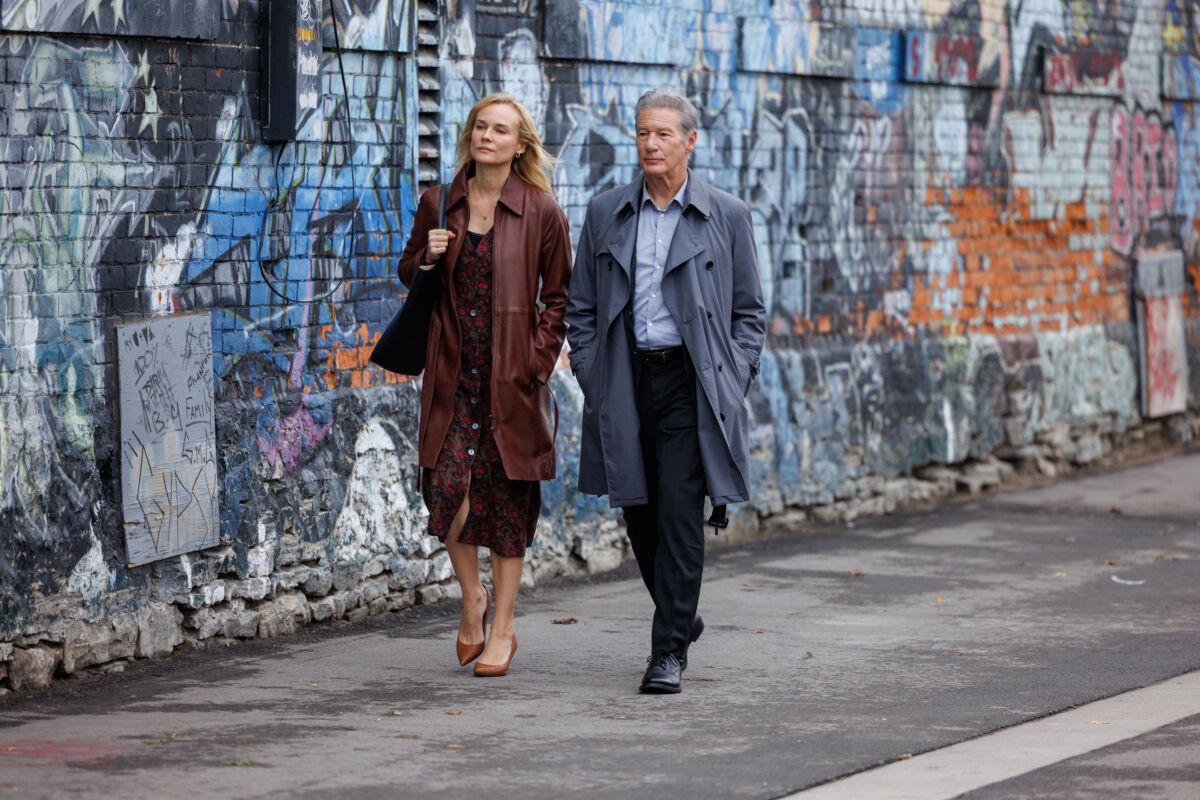How do you mourn someone you didn’t even know? Daniel (Richard Gere) learns from ex girlfriend Rachel (Suzanne Clément) that she was pregnant with their child when they were together 20 years ago. She’s contacting him now because the child in question, Allen (Tomaso Sanelli), has passed away in a car accident. Daniel made it blatantly clear to her that he never wanted children, that’s why she never told him.
Despite Daniel’s desire to never have children, he’s tormented by Allen’s death. He flies out for Allen’s burial, and decides to stick around for a while more so he can learn more about who Allen was when he was alive. This includes visiting his school, talking to Allen’s best friend and girlfriend, and learning about Allen’s obsession with his French Literature teacher Alice (Diane Kruger). He strikes up conversations with Jacob (Larry Day) during his visits to Allen’s grave, as the two swap stories about the lives of their children, and of their unfulfilled lives because they died so young.
Gere’s performance is great. He makes Daniel’s grief so palpable, especially in the shared, imagined scenes he has with Allen. It can’t be easy hearing about how his son was a great pianist, knowing he himself possesses the same gift. But just like any individual, Allen had layers to who he was. He wasn’t just a talented boy, there was also all these other sides to him, and the truth is difficult to swallow for Daniel. We can’t help but elevate and romanticise the dead because it is an acknowledgment of loss, yet at the same time, the things we speak of in eulogies and speeches might not exactly be the reality of things.
To Daniel, a lewd graffitied piece of writing on a building is a love letter, and Alan’s decision to sell drugs a result of being expelled from school. Nothing is Alan’s fault, and even though Daniel never explicitly says it, deep inside he thinks that if he had been a part of Alan’s life, then maybe none of these tragic things would have happened. It is Daniel’s own experience with his father that made him swear never to have children, and the film explores the impact of that. So many of us run away from opportunities or possibilities because of what we are exposed to growing up. If we only knew fear and suffering in certain spaces, then avoiding these spaces may become our blueprints to life. Longing made me reflect on my own compartmentalisation and avoidance because of my experiences, and lament the losses I didn’t even realise I had accumulated.
Longing does take a darkly absurd path in the second half of the movie, but director Savi Gabizon manages to keep the tone of the film strictly in the dramatic category. In a less skilled pair of hands, it might have veered into campy, but as it stands, the movie is just deeply sorrowful. It fleshes out the extent of grief and the places it can drive us to, and lets us see who we are because of it.
Review screener provided.
READ NEXT: 10 Underrated Movies of 2023 You Should Watch
Some of the coverage you find on Cultured Vultures contains affiliate links, which provide us with small commissions based on purchases made from visiting our site.


